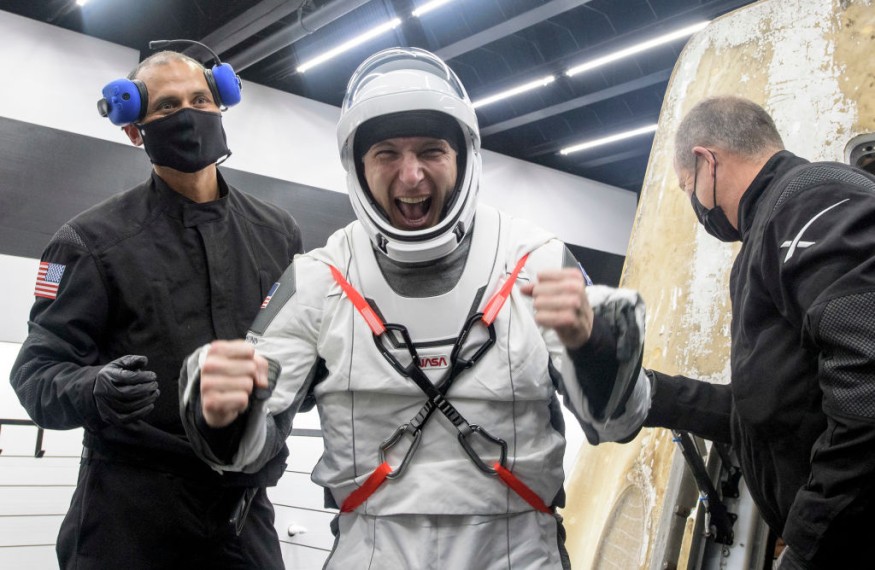Four astronauts who recently returned from the International Space Station said their reentry into Earth's surface and ocean splashdown felt "very heavy."
The SpaceX Crew Dragon capsule bringing the crew back to Earth splashed down early Sunday off the coast of Florida, marking Nasa's first evening ocean landing in more than 50 years.

NASA astronauts Michael Hopkins, Victor Glover, and Shannon Walker and Japan Aerospace Exploration Agency astronaut Soichi Noguchi, landed on Earth at 2:56 a.m. EDT off the coast of Panama City, Florida, in a parachute-assisted reentry.
Crews successfully recovered the spacecraft and astronauts on SpaceX rescue vessels. The astronauts took a flight to Houston after returning to land.
It was the first regular mission to be launched from the ISS and then returned on a spacecraft designed by Elon Musk's company.
After 167 days in space, the longest duration mission for a U.S. spacecraft since the final Skylab mission in 1974, Dragon and the Crew-1 astronauts, @Astro_illini, @AstroVicGlover, Shannon Walker and @Astro_Soichi, returned to Earth this morning! pic.twitter.com/vuWPPrreyh
— SpaceX (@SpaceX) May 2, 2021
Why The Heavy Feeling?
One of the astronauts in the group known as Crew-1, American Victor Glover, said he felt like those cartoons where they feel G and their face just sags down.
"There was a point where I was just saying to myself, breathe. Inhale, because I felt really heavy," Glover told AFP per NDTV.
Glover had expected the landing to be so exciting - and so difficult - that he was disappointed when it turned out to be a little less than he had anticipated. He went on to say that his experience had been fun in every way.
He went on to say that when the landing actually happened, it was a little less than he had expected. But, he said flying and returning are such unique experiences.
It was difficult to breathe because the force of acceleration was concentrated in the chest.
Shannon Walker, a US astronaut, said in a Straits Times report that landing in the water was fascinating because no one knew what to expect. From his own perspective, he said they were softer than landing on the ground.
According to Walker, they spent less time under a parachute than on the Soyuz.
Meanwhile, Soichi Noguchi, a Japanese astronaut, said the landing went smoothly.
He said the impact was "very, very minimal," that they felt the waves right after splashdown and that they had finally returned to the water world.
"That's a great feeling," he said in a France24 report.
Space Tourism
Space "tourists," who aren't trained astronauts, will soon take their seats on Dragon.
According to US astronaut Mike Hopkins, space tourists will be able to handle bumpy reentry trips.
Hopkins said it's not going to be entirely special to them after the civilians go through centrifuge preparation.
Since the space shuttle's final flight in 2011, CBS News said the Crew Dragon is the first American spacecraft to send astronauts into orbit from American soil.
NASA has relied on Russia's Soyuz spacecraft to transport astronauts from the United States and partner agencies to and from the International Space Station for the past nine years, paying more than $80 million per seat under recent contracts.
The Crew Dragon and, finally, Boeing's Starliner CST-100 capsules are aimed at ending the dependence on Russia while also allowing private-sector production in low-Earth orbit.
Read also: Blue Origin: Jeff Bezos to Auction off First Space Tourism Flight Aboard New Shepard for July
Check out more news and information on Space on Science Times.












